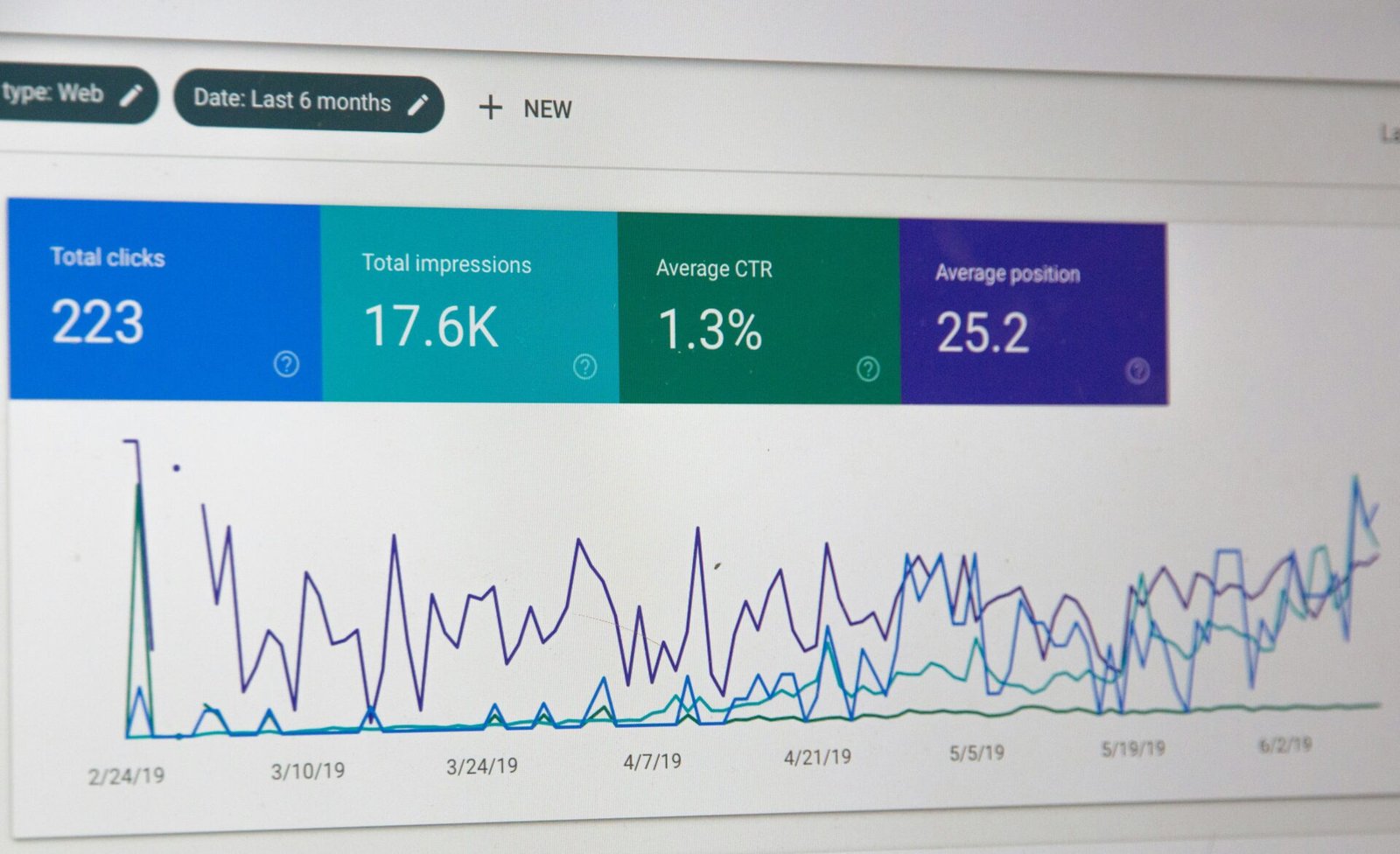The Ultimate Guide to Google Search Engine Optimization: Everything You Need to Know
Understanding Google’s Algorithm. Learn how Google ranks web pages and optimize your site for better visibility and traffic.
-
Rhytonkingdom
-
06 Feb

Intro
In today’s digital age, having a strong online presence is crucial for business success. And when it comes to being visible on the web, Google search engine optimization (SEO) is key. This ultimate guide covers everything you need to know to optimize your website and improve your ranking on Google’s search results. From keywords to backlinks, we’ve got you covered.
Understanding SEO
What is SEO, and how does it work?
SEO is the process of optimizing your website to get organic traffic from search systems like Google. SEO work involves creating content that search engines understand and can rank well for search queries. By improving your search system ranking, you can increase traffic to your website through organic search results.
Search engines use algorithms to determine the search quality and relevance of a website to a search term. SEO tools like Google Search Console can help guide your SEO efforts by providing insights into your website’s performance and areas for improvement. Types of SEO include Local SEO, Content Marketing, and Search Marketing.

Why is SEO important for your online presence?
SEO is crucial for your online presence because it helps search systems understand your website better and ultimately improve your ranking on search engine results page.
By following the beginner’s guide to SEO or SEO starter guide, you can learn SEO basics and SEO fundamentals to attract organic search traffic and reduce reliance on paid search.
Search engines use crawlers to navigate the web search and identify relevant results for users. Understanding how search systems work and the types of search algorithms they use is essential for being visible in the world of search. The SEO industry is constantly evolving, so staying updated on search system algorithms and search quality evaluator guidelines is crucial for improving search.
How do search engines influence SEO?
Search systems play a crucial role in SEO in the world of digital marketing. According to Search Engine Land, they are a key part of SEO best practices and are essential for ranking higher in search.
Major search systems like Google crawl websites to determine their ranking in search results. Understanding how search engines index and rank websites is an important part of SEO.
Google’s search generative experience is focused on ensuring that people have the best search experience possible. The search giant’s goal of SEO is to help people and search systems alike understand your content. By following the SEO best practices outlined in the Google Search Central blog, websites can improve their chances of being indexed by search engines.
Getting Started with SEO

What are the basics of search engine optimization?
SEO is actually the process of optimizing your website so that search systems can easily discover and understand the content in the search. Many people search for something like this on the web, so it is important to understand how SEO works.
SEO plays a crucial role in ensuring that search engines understand your content and search systems rank your website higher in search results. There are various areas of SEO that focus on improving search ranking factors in both organic search and paid search.

How to develop an effective SEO strategy?
When it comes to SEO, understanding the role of SEO is crucial in developing an effective strategy. Search engines discover and crawl websites based on various aspects of SEO that can help improve visibility.
Utilizing the best SEO practices and combining SEO and paid search can greatly impact how search systems may rank a website. Embarking on an SEO learning journey is essential to understand the search behavior and how users used to search online.
What are the key ranking factors to consider?
When it comes to SEO, understanding the key ranking factors is crucial. Search engines crawl websites to determine their relevance and importance. Utilizing effective SEO strategies can help improve your website’s visibility and ultimately its ranking on search systems results pages.

Optimizing Your Website
What is the role of technical SEO in optimization?
Technical SEO plays a crucial role in search engine optimization by optimizing the technical aspects of a website to improve its visibility in search systems. From improving site speed to optimizing meta tags, SEO can help ensure that a website is easily crawled and indexed by search systems. Ultimately, when it comes to SEO technical optimization is key.
How to improve your website’s search ranking organically?
Search engine rankings can be improved organically through search
system optimization techniques such as creating quality content, utilizing relevant keywords, optimizing meta tags, and building backlinks from reputable sources.
Regularly updating and maintaining your website with fresh, engaging content can also help boost your rankings by increasing visibility and credibility with search systems.

What tools can help in enhancing your SEO efforts?
Search engine optimization efforts can be enhanced by utilizing various tools such as keyword research tools, backlink analysis tools, and website audit tools. These tools help to identify opportunities for improvement, track performance, and optimize content for better visibility on search systems.
Mastering Keyword Research

How to identify and leverage relevant keywords?
When identifying keywords for search system optimization, start by brainstorming terms relevant to your content. Use tools like Google Keyword Planner to see popular search terms. Search engine algorithms favor relevant keywords, so be sure to incorporate them naturally into your content. Track your success by monitoring search system rankings and adjusting your strategy accordingly.
Why is understanding search intent crucial for keyword optimization?
Understanding search intent is crucial for keyword optimization because it allows search engines to deliver relevant results to users. By tailoring keywords to match user intent, websites can improve their search system optimization and attract more organic traffic. This in turn can lead to higher conversions and, ultimately, better overall performance for the website.
What are the best practices for keyword usage in content?
SEO relies heavily on effective keyword usage in content. To maximize visibility on search engines, it is important to conduct thorough keyword research and strategically incorporate those keywords throughout the content.
The best practices include using long-tail keywords, placing keywords in meta tags, and optimizing keyword density. By following these practices, content creators can improve their rankings on search system results pages.
Measuring SEO Success

What are the key metrics to track for SEO performance?
Search engine optimization relies on several key metrics to track performance. Monitoring rankings on search systems like Google is crucial to determine visibility. Organic traffic, click-through rates, and bounce rates are indicators of user engagement.
Conversion rates provide insight into the effectiveness of SEO strategies. Regular monitoring and analysis of these metrics are essential for ongoing success.
How to analyze and interpret search engine results data?
Search engine results data can be analyzed and interpreted using various tools and
techniques. By looking at key metrics such as click-through rates, bounce rates, and average session duration, marketers can gain insights into the effectiveness of their search systems optimization strategies. It is important to regularly monitor and adjust these strategies based on the data to improve overall performance.

SEO stands for search systems optimization. It is the process of optimizing your website to increase its visibility for relevant searches. Search engines work by crawling websites to understand their content and ranking them based on various factors such as keywords, backlinks, and user experience.
There are two main types of SEO – on-page SEO and off-page SEO. On-page SEO involves optimizing content and HTML source code on a webpage, while off-page SEO focuses on external factors like backlinks and social signals.
Organic search results are the unpaid listings on a search systems results page that are determined by the search engine’s algorithm. Paid search results, on the other hand, are ads that businesses pay for to appear at the top of the search results.
Some popular SEO tools include Google Analytics, SEMrush, Moz, Ahrefs, and Screaming Frog. These tools can help with keyword research, backlink analysis, site audits, and tracking search performance.
Search ranking factors include the quality of content, relevance of keywords, website speed, mobile-friendliness, backlinks, user experience, and social signals. Search engines like Google use these factors to determine how to rank webpages in search results.
SEO plays a crucial role in digital marketing by helping businesses improve their online visibility, drive organic traffic to their websites, and ultimately increase conversions and revenue. It is an essential component of any digital marketing strategy.
The goal of SEO is to increase a website’s visibility in search systems results pages and drive organic traffic. By optimizing a website for search systems, businesses can attract more visitors, generate leads, and improve their online presence.








Comments ( 0 )